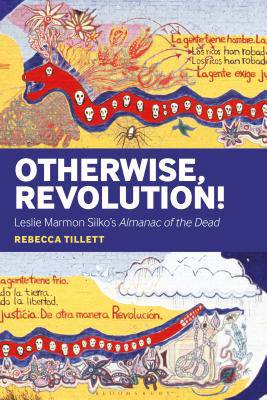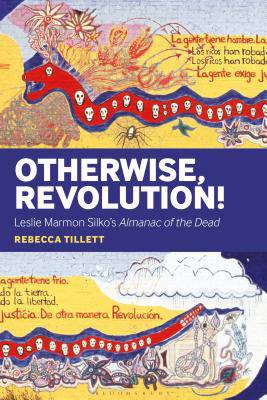
Je cadeautjes zeker op tijd in huis hebben voor de feestdagen? Kom langs in onze winkels en vind het perfecte geschenk!
- Afhalen na 1 uur in een winkel met voorraad
- Gratis thuislevering in België vanaf € 30
- Ruim aanbod met 7 miljoen producten
Je cadeautjes zeker op tijd in huis hebben voor de feestdagen? Kom langs in onze winkels en vind het perfecte geschenk!
- Afhalen na 1 uur in een winkel met voorraad
- Gratis thuislevering in België vanaf € 30
- Ruim aanbod met 7 miljoen producten
Zoeken
€ 79,95
+ 159 punten
Uitvoering
Omschrijving
Leslie Marmon Silko's 1991 novel Almanac of the Dead is a profound and challenging analysis of late capitalist society in America and more widely, and the ways in which powerful minority elites ensure that their power is never challenged nor shared, through the complicit discourses of imperialism, patriarchy, religion, medicine, science and technology. Almanac's exploration of multiple forms of dispossession and resistance is most fully embodied in the two Armies of Justice, who are devoted to overturning oppression in all forms and to the restoration of social and economic justice. Reading Almanac in the light of the global economic recession of 2008, this study assesses the ways in which Almanac's vision of oppressive capitalism continues to have absolute relevance. Perhaps most importantly, this study provides a groundbreaking reading of Almanac for the 21st century, comparing Silko's activist armies with recent international popular social justice activism such as the Arab Spring, the international Occupy movement, and the Indigenous Idle No More movement.
Specificaties
Betrokkenen
- Auteur(s):
- Uitgeverij:
Inhoud
- Aantal bladzijden:
- 208
- Taal:
- Engels
Eigenschappen
- Productcode (EAN):
- 9781501358098
- Verschijningsdatum:
- 19/09/2019
- Uitvoering:
- Paperback
- Formaat:
- Trade paperback (VS)
- Afmetingen:
- 152 mm x 229 mm
- Gewicht:
- 281 g

Alleen bij Standaard Boekhandel
+ 159 punten op je klantenkaart van Standaard Boekhandel
Beoordelingen
We publiceren alleen reviews die voldoen aan de voorwaarden voor reviews. Bekijk onze voorwaarden voor reviews.









